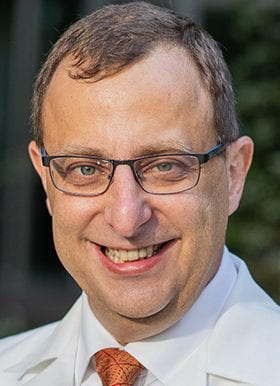
Beau Ances, MD, PhD
Daniel J. Brennan, MD Professor, WashU Neurology
- Phone: 314-747-8423
- Email: bances@nospam.wustl.edu
Therapeutic Strategies for HIV Associated Neurocognitive Impairment
The Ances laboratory at Washington University in Saint Louis (WUSTL) utilizes state-of-the-art neuroimaging techniques [including resting state functional connectivity (rs-fc), arterial spin labeling (ASL), diffusion tensor imaging (DTI), volumetrics] and neuropsychological performance testing to develop novel biomarkers for neurodegenerative disorder. The Ances laboratory focuses on:
- HIV: HIV+ Individuals are now living longer due to recent advances in highly active antiretroviral therapy (HAART). By 2015 more than half of all HIV+ patients in the United States will be greater than 50 years old. In addition, one of the largest growing groups of HIV+ patients is adolescents. Both cortical and subcortical changes continue to occur despite HAART and can lead to HIV associated neurocognitive disorders (HAND). The Ances laboratory focuses on developing non-invasive neuroimaging and neuropsychological performance biomarkers to assess changes in the brain due to HIV and aging.
- Alzheimer’s disease (AD): More than 5 million Americans are living with Alzheimer’s disease and it is the 6th leading cause of death. Recent criteria have been developed to identify preclinical AD. The Ances laboratory focuses on developing non- invasive neuroimaging biomarkers to identify early changes in the brain due to AD. It is hoped that earlier diagnosis will lead to successful interventions.
- Cruetzfeld-Jacob Disease (CJD): CJD is a rapidly progressive neurodegenerative disease with diagnosis often made at autopsy. Currently there are no therapies for CJD. The Ances laboratory focuses on developing non- invasive neuroimaging biomarkers to identify early changes in the brain due to CJD.
- Paraneoplastic disorders: paraneoplastic disorders often result from an occult tumor and can lead to limbic encephalitis. The Ances laboratory focuses on developing non- invasive neuroimaging biomarkers to identify changes in the brain due to paraneoplastic disorders.
Under the direction of Dr. Beau Ances the lab supports post-doctoral research associates, residents, medical students, graduate students, and undergraduates in their research and educational development. We have strong collaborations not only within the WUSTL community but also several institutions in the United States (e.g. University of Missouri Saint Louis, Yale University, University of California San Diego, University of California San Francisco, University of Pennsylvania, Johns Hopkins University, University of Pittsburgh, Vanderbilt University, University of Chicago) and internationally (Capetown University).